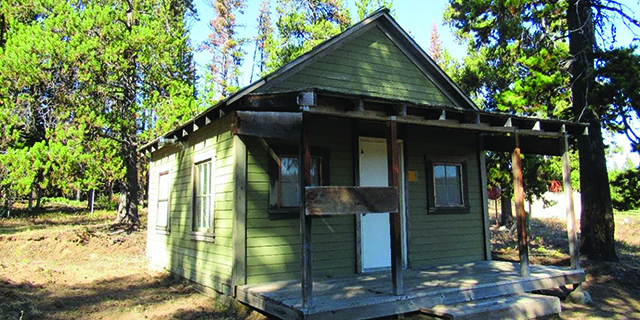Health care can be economic development
Published 11:01 am Tuesday, September 18, 2018
Health care eats up more and more of our thought, political debate, money and time.
Maybe its because medical technology has advanced so rapidly, or because the cost of health care keeps rising; maybe we are getting older and need more health services; maybe because of birth control –– we no longer have six, eight or 11 children, and we are naturally insistent that the one or two we have are very well taken care of.
Trending
In Wallowa County, there has been an absolute revolution in health care services in the past 30 years. No criticism here –– it was part of the times –– but sometime in the early ‘70s Wallowa Memorial Hospital Director Lester Palmer bragged to me that we had the lowest hospital room rates in the state.
From 1971, when I moved here, until sometime in the ‘80s, we had at least four active doctors (all men, by the way; another sign of the times). But in the ‘80s, doctors and many others joined the parade of people dancing disco in cities and suburbs. “Yuppie” stood for “young urban professionals.”
Dr. Scott Siebe and Dr. Lowell Euhus practiced herculean medicine here in the ‘80s, the twosome covering all clinic calls and all ER visits. Scott says it meant 110-120 hour weeks.
But this is not a column about how we got to where we are now: a new hospital with multiple E-rooms and oncology stations; several family physicians (many of them women), a full-time surgeon and frequent cardiologist visits and more.
What I would like to do instead is take a lesson from my long-ago experience as a Peace Corps Volunteer in Turkey and see if we can make a case for making Wallowa County a model for a different kind of medical and demographic policy in America. Let’s not talk about present-day Turkey –– the past decade or so has seen the growth of autocracy and religious influence on what was a secular and mostly democratic state when I was there 1965-70.
My Peace Corps group arrived just 27 years after Ataturk, the founder of modern Turkey, died. Ataturk had rescued a defeated Ottoman Empire from the ashes of WW I and fashioned a modern European-style nation-state out of the ashes.
Trending
When Mustafa Kemal, later named Ataturk, or “Father of the Turks,” pushed the European powers intent on dividing Turkey up to the seas, he carefully crafted the new nation on principles of division of powers, egalitarianism, empowerment of women, and, maybe most importantly, the dispersion of services broadly across the country.
Istanbul was the major metropolis; Ataturk chose a Central Anatolian village as his capitol, Ankara. He then built sugar and cement factories and educational institutes across the rural landscape of Turkey and began building roads to connect them.
The lesson here, I think, is in putting important industry and service in rural places. (It’s what we did in America with the Land Grant College program.) And I think Wallowa County’s booming health care system can be a model for dispensing health care, for changing the demographics that are creating unaffordable cities in some areas and leaving others behind and for creating vital rural areas across the country.
Our new hospital opened in 2007. We had advanced from two docs in the in part because Dr. Euhus went to a regional health care meeting to tell people that rural health docs and health care were dying. The head of family medicine at Oregon Health Sciences said he could fix that: from that day forward, a family practice residency would include a rural rotation and he would start with Enterprise.
Thank Euhus and Siebe for keeping us alive in dark times, and Larry Davy for having the new hospital vision. Although Larry skipped a few years as hospital director, he was there with the vision before it happened and is back presiding over the new developments.
And we now have nine family docs, a general surgeon and an emergency room director/physician along with a passel of specialists making regular visits. We have fine birthing suits and physical therapy facilities and an oncology outpatient treatment set-up that keeps local patients local.
Health Care is our new wheat ranch or lumber mill, and it makes the survival of agriculture and lumbering possible.
The cost of the new hospital was $23 million. Not much in big government dollars. What if we spotted new rural hospitals in Dufur and Toledo and Lake County? What if there were new good hospitals in dozens of towns and counties with fewer than 10,000 residents across the country?
Build it and they will come.
Columnist Rich Wandschneider lives in Joseph.









